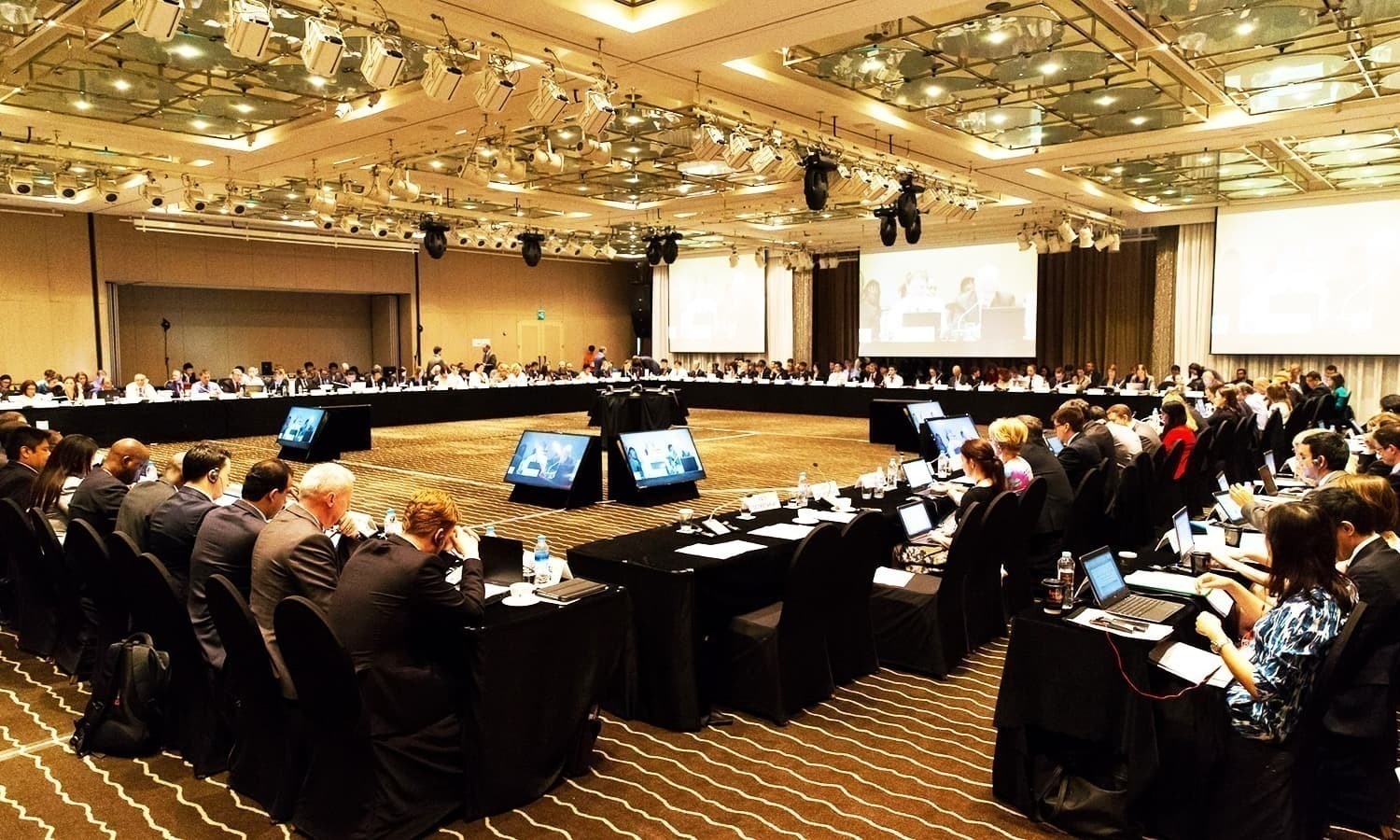
Four days before the FATF meeting, Pakistani authorities arrest four top leaders of JuD. But the country has a long way to go before it can get off the grey list

Financial Action Task Force’s decision to keep Pakistan on its grey list for another four months has frustrated Pakistan’s hopes; especially after the government arrested Hafiz Saeed, the chief of Jamaatud Dawa (JuD) and his close aides just recently.
Pakistani officials who attended the FATF meeting, held on October 14 and 15 in France, had been confident that Pakistan’s name would be removed from the grey list in the wake of the recent crackdown against the JuD and other proscribed groups. But the target could not be achieved.
Pakistan showed extreme seriousness in the crackdown against the JuD (seen widely as a reincarnation Lashkar-e-Taiba, a group that was alleged to have carried out the Mumbai terror attacks), and arrested four top leaders of the group namely Professor Zafar Iqbal, a co-founder of the JuD/LeT, Yahya Aziz, Muhammad Ashraf and Abdul Salam on charges of terror financing. The arrests took place on October 10 - four days before the FATF meeting. Previously, Hafiz Saeed, the JuD Chief was arrested on July 17 from Gujranwala by the Counter Terrorism Department (CTD) while he was on his way to get pre-arrest bail in a case, on the same charges - collecting funds for the proscribed organisation.
An official of the Foreign Ministry tells TNS, on condition of anonymity because he is not authorised to speak to media on record, "FATF wants us to do more and we are bound to oblige. Otherwise, the sword of being blacklisted will keep hanging on over heads."
The official says, "The Asia Pacific Group’s (APG) report, presented to the FATF indicated that Pakistan had taken some steps against money laundering and terror financing but there were certain flaws in the system due to which it could not achieve the target."
The key findings in its report, presented read, "Pakistan completed its first ML (Money Laundering) and TF (Terrorism Financing) National Risk Assessment in 2017 and assigns a national risk-rating of ‘medium’ for both ML and TF. However, competent authorities have varying levels of understanding of the country’s ML and TF risks, and the private sector has a mixed understanding of risks. While Pakistan has established a multi-agency approach to implement its AML/CFT regime, it is not implementing a comprehensive and co-ordinated risk-based approach to combating ML and TF."
The APG’s report says that Pakistan is using financial intelligence to combat ML, TF, predicate crimes and to trace property for confiscation purposes but only to a minimal extent.
"Pakistan LEAs have undertaken 2,420 ML investigations, resulting in 354 prosecutions (primarily self-laundering cases) and the conviction of one natural person for self-laundering related to corruption. Proportionality and dissuasiveness of the sanctions against natural persons could not be assessed due to a lack of information. Pakistan’s law enforcement efforts to address ML are not consistent with its risks," reads the report.
It further says Pakistan’s LEAs have means to freeze, seize, and prevent dealing with property subject to confiscation. LEAs are seizing some assets in cases of predicate offences, but not in ML cases. Overall, the value of confiscated funds is not commensurate with Pakistan’s ML/TF risk profile. Pakistan faces a significant TF threat. TF cases are identified by number of mechanisms but not via financial intelligence. Pakistan has registered 228 TF cases and convicted 58.
"The State Bank of Pakistan does not have a clear understanding of the ML and TF risks unique to the sectors it supervises. The State Bank of Pakistan is improving its understanding and is implementing a risk-based approach including conducting regular on-site and thematic AML/CFT supervision activities. Some improvement in AML/CFT compliance is evident as a result of SBP’s supervision, but the value of monetary sanctions imposed is low. The Securities and Exchange Commission of Pakistan has a limited understanding of ML/TF risks and has not implemented a risk-based supervisory approach."
A high-ranking official of the Punjab Counter Terrorism Department (PCTD) tells The News on Sunday, "We are doing our best to save the country from being blacklisted. If somebody thinks that arrest of the JuD leaders is an eyewash, they are mistaken. The CTD will complete investigations against Saeed and his bandwagon and try to get him convicted in terror financing and other cases."
Analyst Khaled Ahmed says that crackdown against proscribed organisations cannot be avoided as China also has long demanded for it from the platform of Brics (Brazil, Russia, India, China and South Africa). "We cannot dishonour China’s wishes therefore Pakistan took some serious steps against LeT and some other militant groups. Surprisingly, Jaish e Muhammad’s name has not surfaced during the last few months."
TNS contacted the Bahawalpur seminary that had been the JeM’s headquarters. The respondent requested not to be identified and said, "The building, you are referring to, is not linked to the JeM any longer. It is now just a madrassa. The district administration checks us regularly." He said, "I have heard of Masood Azhar but have never seen him or any of his brothers."
Imran Gill, Hafiz Saeed’s lawyer had submitted a petition in Lahore High Court last month and requested that Saeed’s case should be transferred from Gujranwala to Lahore. The LHC has granted his request.
"Now, Hafiz Saeed will be produced before Anti-Terrorism Court Number 1 in Lahore on October 23," says Gill.
But is a bail application for the release of Saeed on the cards?
"No," says the lawyer.
"We will think about it after October 23," he adds.